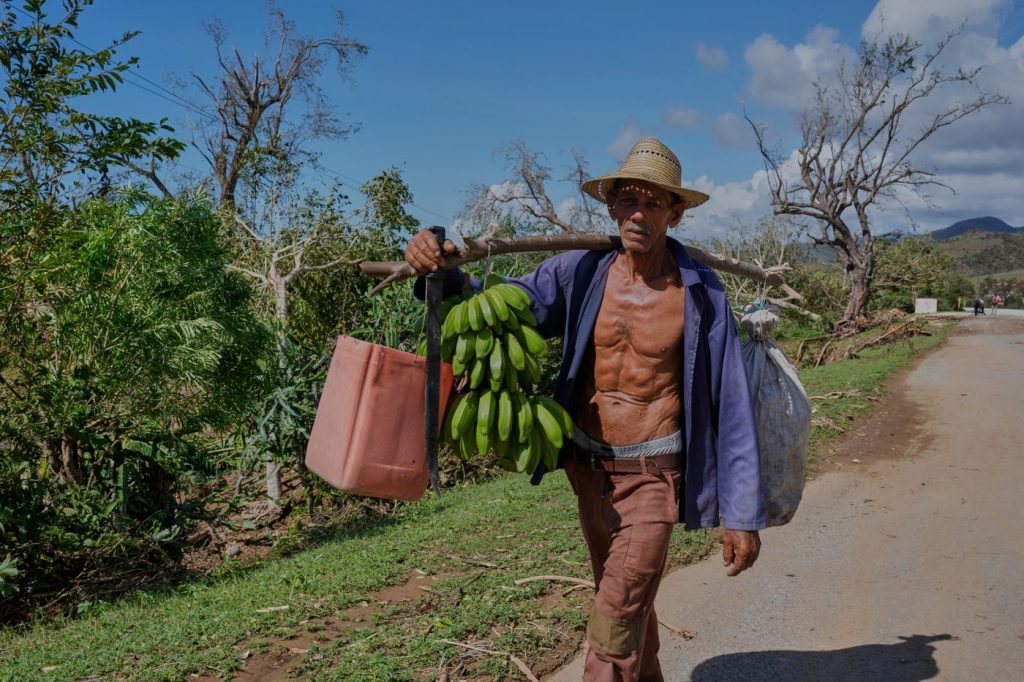The aftermath of Hurricane Melissa has left significant devastation in Jamaica, particularly affecting the fishing and farming communities. Fisherman Prince Davis, who was in Nicaragua seeking new customers for his fish business, faced the heartbreaking news that his 50-foot (15-meter) fishing boat was severely damaged, while his father's boat remains missing. The storm also ravaged the roof of the family home in White House, a small fishing community in Westmoreland parish.
Davis expressed his concerns about the future of his business, stating, "It's going to be very rough. With the damage now, no one will be buying products." Similarly, Denver Thorpe, a farmer from nearby Amity, lost 15 acres (6 hectares) of mango trees and two greenhouses. "There's absolutely nothing," he lamented, highlighting the widespread devastation that Hurricane Melissa has wrought.
Hurricane Melissa, which brought destructive winds up to 185 mph (298 kph) and catastrophic storm surges, is responsible for at least 19 deaths in Jamaica. Damage assessments are ongoing, but experts already indicate that this hurricane, noted as one of the strongest landfalling storms in recorded history, has inflicted severe economic harm upon tens of thousands of Jamaican fishers and farmers, vital contributors to the local economy.
In addition to Jamaica, the impacts of Hurricane Melissa are anticipated to have similarly harsh effects on small-scale producers in Cuba and Haiti. Lola Castro, the regional director for the World Food Program (WFP), remarked that all crops in the hurricane's path suffered damage, and while some trees may recover, many of the temporary crops will not. This destruction not only endangers the immediate livelihoods of farmers and fishers but also aggravates food insecurity across the region, which previously affected approximately 10 million individuals in Haiti, Jamaica, and the Dominican Republic.
The agricultural sector in Jamaica is particularly vulnerable given its reliance on small-scale producers—around 80% of whom operate on two hectares of land or less. Farming activities support a diverse range of crops, including bananas, melons, and coffee. However, just 15 months prior, Hurricane Beryl had already inflicted significant damage, impacting over 50,000 farmers and incurring losses amounting to $4.73 billion Jamaican dollars (approximately $29 million), as reported by the Ministry of Agriculture, Fisheries and Mining.
The local agricultural ministry has yet to respond to inquiries regarding the current impacts on the sector, but the immediate need for assistance is urgent as small-scale producers like Davis and Thorpe begin to come to terms with their losses. For fishers, additional complications arise from power outages hindering their ability to store catches, with insufficient ice to preserve their fish leading to decreased sales—especially detrimental for those who rely on their daily catch to feed their families.
The situation is compounded in neighboring countries like Haiti and Cuba, which are also grappling with pre-existing political and economic crises. In Haiti, Hurricane Melissa resulted in 31 confirmed deaths and added to the existing hunger crisis. The WFP is particularly concerned about the impact on female producers in Haiti, who are crucial suppliers for local schools. Meanwhile, in Cuba, extensive evacuations were conducted, avoiding fatalities, but damage to crops, including plantains and corn, poses further challenges to the island’s already strained food supply.
Relief efforts are currently mobilizing to provide immediate assistance in the form of shelter, healthcare, food, and clean water to the affected regions. The Jamaican government is prepared to draw from reserve funds and parametric insurance policies to assist those in need, particularly farmers and fishers who require financial aid to recover and replenish lost resources. However, experts warn that aid may take time to reach the most disadvantaged small-scale producers.
In the midst of this recovery, with airports reopening, Davis is eager to return to Jamaica, facing the daunting task of repairing his boat and home while being uncertain about when he will be able to resume his fish sales. "My worry is about when the economy will be back to normal," he noted, reflecting the collective struggle to rebuild after the hurricane's widespread destruction.











